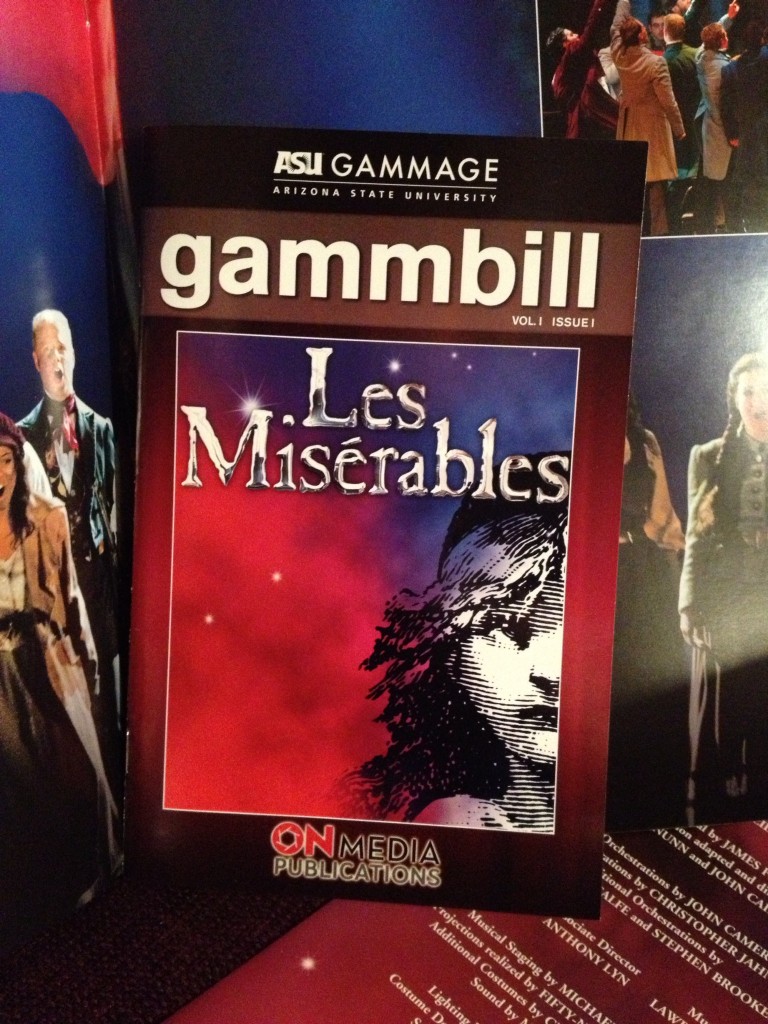Warning: This is a blog post about Les Misérables. I can’t seem to write about Les Mis without rivers of praise gushing forth from my keyboard, so… Well, all I can say is that I tried to reign myself in.
Two weeks ago, I had the chance to see the restaged version of Les Misérables. It is, without reservation, my favorite musical. It’s one of my favorite novels as well—if not the favorite, which is a risky thing to say as an English Lit major. (Pick my favorite book, you say? That’s impossible! There are far too many books in the world, too many stories to love.)
Still, despite all the competition, Les Misérables stands out to me. I first fell in love with it during my junior year of high school. The novel is sweeping, sentimental, and unabashedly spiritual in scope. The characters are so iconic they seem like something out of legend or myth, rather than part of a book penned only two hundred years ago. The redemptive quest of Jean Valjean, the convict who spends nineteen years in prison for stealing a loaf of bread, is the kind of epic narrative that is impossible to forget.
Victor Hugo is a role model for me, both as a writer and as a human being. His writing practically bleeds compassion, which I admire even more than his keen grasp of human psychology or his eloquent turn of phrase. During my senior year of high school, I chose the following quote of his to inscribe under my photo in the yearbook: “To love another person is to see the face of God.”
Needless to say, his work has a great deal of personal resonance for me. So as I sat in the theater two weeks ago, watching a gorgeous dramatization of one of my favorite stories, I remembered how much I loved it, and why. I also realized something new, something that surprised me. In many ways, Les Misérables is the standard against which I measure myself as a writer.
I will never write a novel as classic and beloved as Les Mis, of course. I’m no Victor Hugo, no literary genius or visionary. But I will say that when I set out to create a story, I am most satisfied when I attempt to include the following elements:
-A large cast of characters, each one as layered and sympathetic as possible
-A setting in which time and place connect closely with the plot
-A plot concerned with large-scale events and themes (Hugo writes about love, politics, poverty, war, and the salvation of the soul, just to name a few!)
-A story in which profound tragedy occurs, including but not limited to death
And…
-A story in which every event, character, and place could symbolize something deeper than the literal narrative—a story, in other words, which deals with archetypes and our cultural/mythological heritage as human beings
More than any other work of literature, Les Misérables taught me to value these qualities in storytelling. Honestly, any novel that aims for less tends to seem a little insignificant by comparison. I mean, if your characters aren’t dying bravely for a lost cause on top of a barricade of broken furniture, well then, what’s all the fuss about?
In all seriousness, though, Les Misérables taught me to think on a larger-than-life scale when I write. After all, what’s the point if I don’t push myself to convey the most important and interesting ideas I can? When I look at the list in this post, I realize just how far my own stories fall short of this goal. Not every novel can be a literary epic, and truthfully, not every novel should be. But Victor Hugo’s masterpiece motivates me to always aim higher. As the saying goes, even if we miss the moon, we may very well land among the stars.
On that note, I would like to conclude by embedding the trailer for the movie version of the Les Misérables musical, which comes out in December. Not because it relates to my post in any meaningful way, but just because I’m near-delirious with excitement (and this trailer gives me chills, every time!):

